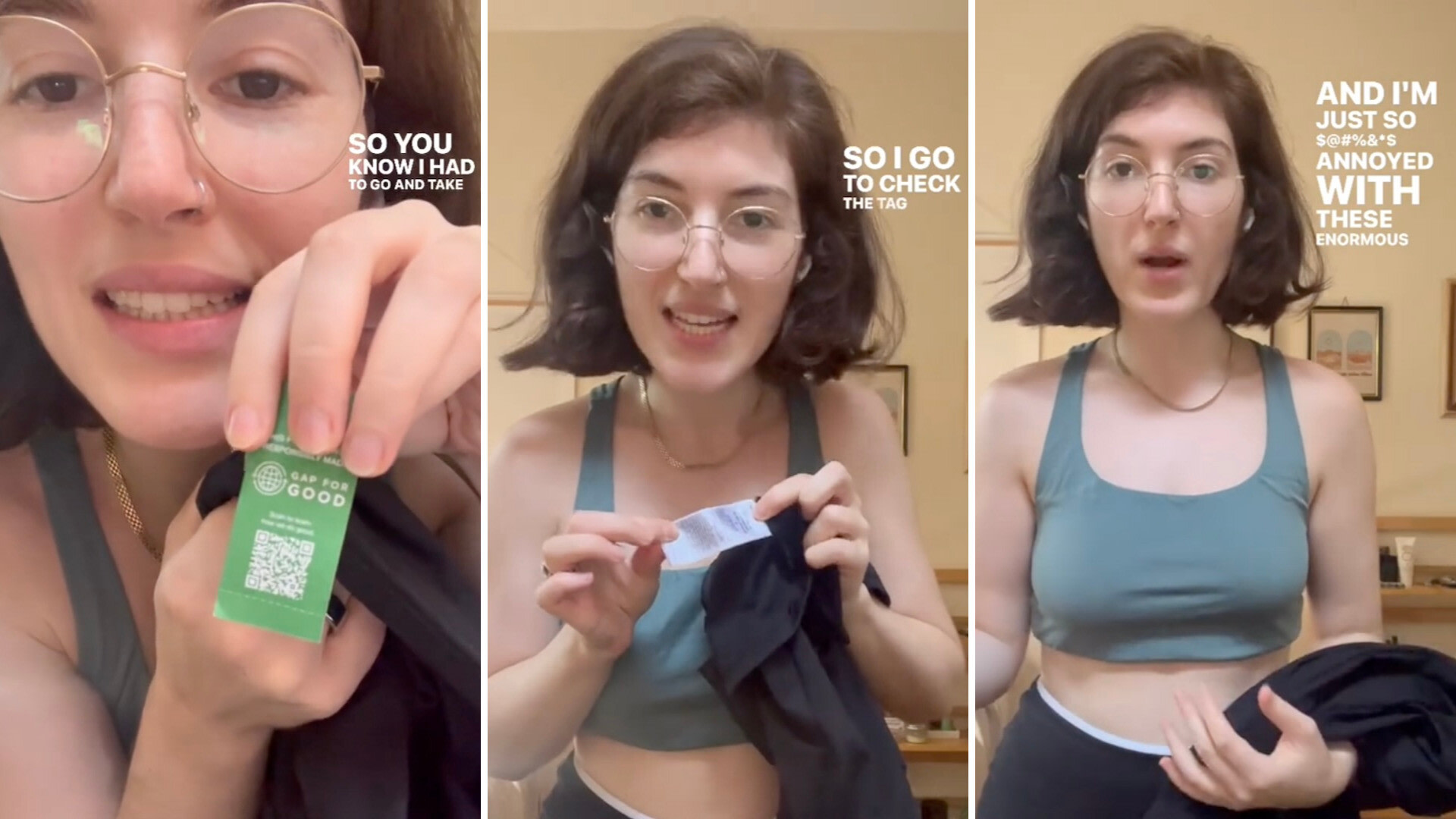The tag inside the Gap dress could fool anyone. With a vivid green color and a neat QR code inviting consumers to look at the company's sustainability policies, it would be easy for the average wearer to conclude that this garment is, in fact, environmentally friendly.
Unfortunately, they'd be wrong.
@sustainablesabs Greenwashing 101 ✨ a lesson from @gap 🫶🏻 #greenwashing #sustainable #sustainability #thrifted #secondhand #shopsecondhand #ethicalfashion #slowfashion ♬ original sound - SustainableSabs
Sustainability advocate Sabs Katz (@sustainablesabs) discovered this when she looked deeper into the substance behind the tag's claims. In a video she posted to TikTok — which she labels as a "Greenwashing 101" lesson — she explains that as she read through the initiatives linked from the QR code, she was impressed.
"So I go to check the tag to see which of these materials that GAP is using," she says, "but the label says, 'Made with polyester and spandex/elastane.' There's no recycled polyester."
Frustrated, she continues: "I'm just so f****** annoyed with these enormous brands who think they can just slap one of these labels onto a piece of clothing and think that they can hoodwink us and make people think that they're making a more sustainable decision than they actually are. The majority of people aren't actually gonna take a look at it; they're just gonna see this label and take it at face value."
Commenters echoed her sentiments.
"Such bull****," one wrote.
Unfortunately, this is hardly the first case of blatant greenwashing by an apparel company, particularly a fast fashion company. And in some cases, consumers are calling them out. For example, a lawsuit was recently filed against apparel giant Lululemon for knowingly misleading the public about its sustainability initiatives.
Brands are doing this because they know sustainability matters to their buyers. According to a 2022 Statista report, nearly two-thirds of Americans labeled sustainability as a priority in their clothing choices, be it through materials, efficient processes, or similar initiatives.
🗣️ What should the government do about the fast fashion industry?
🔘 Set strict regulations 🚫
🔘 Incentivize sustainable options 💰
🔘 Use both regulations and incentives 🏛️
🔘 Nothing 🙅
🗳️ Click your choice to see results and speak your mind
But because the industry has built its business on precisely the opposite types of practices, many "sustainable" brands are claiming to be much farther along than they actually are.
Part of the issue is that reporting of emissions is still largely unregulated for apparel makers, allowing companies to report a drastic reduction in emissions when really they've just changed their definitions.
Sabs expressed outrage at the fact that Gap could so knowingly deceive customers. "There really needs to be more legislation against this, because this is bull****," she said.
Join our free newsletter for good news and useful tips, and don't miss this cool list of easy ways to help yourself while helping the planet.









